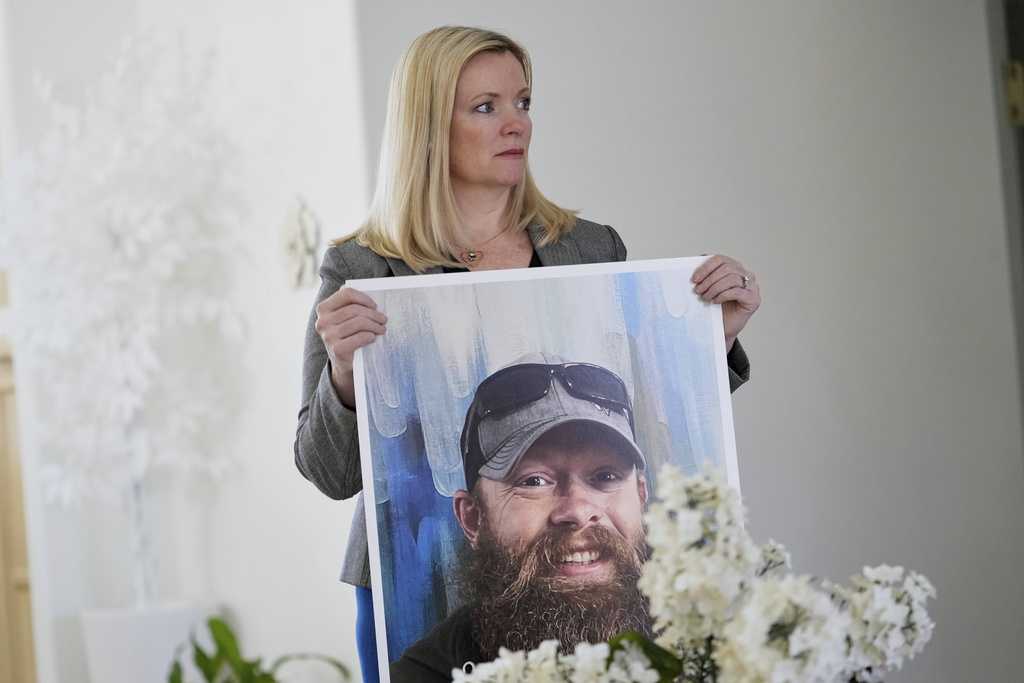AI-Generated Video Gives Victim a Voice at Killer’s Sentencing in Arizona

Many statements were presented to the court by relatives and acquaintances of Christopher Pelkey at the sentencing hearing for the individual found guilty of killing him in an altercation sparked by road rage. These accounts offered insights into Pelkey’s sense of humor, his personality traits, as well as his contributions through military service.
However, there was nothing comparable to receiving feedback directly from the victim — even though it was an AI-synthesized rendition.
Video above: Are AI partners the future of romance?
It is thought to be unprecedented in U.S. courts: Pelkey’s family utilized artificial intelligence to produce a video featuring his image, thereby giving him a voice. In this AI recreation, Pelkey addressed the shooter at last week’s sentencing hearing, expressing regret about their meeting in 2021 under such unfortunate conditions—adding that perhaps they might have become friends had things been different.
"I trust in forgiveness and in God who forgives. This has been my belief and remains so now," Pelkey's avatar conveyed to Gabriel Paul Horcasitas.
The AI version of Pelkey went on to share advice for people to make the most of each day and to love each other, not knowing how much time one might have left.
As the application of artificial intelligence expands within the judicial system, it has generally been confined to administrative duties, legal research, and case preparation. In Arizona, AI has played a supportive role in these areas. inform the public of rulings in significant cases .
However, employing AI to create victim impact statements represents a novel—and legally permissible, at least in Arizona—method for submitting information to the court beyond the evidentiary stages.
Maricopa County Superior Court Judge Todd Lang, who presided over the case, said after watching the video that he imagined Pelkey, who was 37 at the time of his killing, would have felt that way after learning about him. Lang also noted the video said something about Pelkey's family, who had expressed their anger over his death and had asked for Horcasitas to receive the maximum sentence.
Horcasitas, 54, was convicted of manslaughter and sentenced to 10.5 years in prison.
"Even though that's what you wanted, you allowed Chris to speak from his heart as you saw it," Lang said.
Horcasitas' attorney, Jason Lamm, informed The Associated Press that they submitted an appeal notification shortly after the hearing concluded. Lamm indicated that it is probable the appeals court will consider whether the judge incorrectly depended on the AI-generated video during sentencing.
The incident occurred on the afternoon of November 13, 2021, when both drivers were halted at a red light. As per reports, Pelkey was shot after exiting his vehicle and approaching Horcasitas' car.
Pelkey's sister, Stacey Wales, raised the idea of her brother speaking for himself.
For years, while the case worked its way through the legal system, Wales said she thought about what she would say at the sentencing hearing. She struggled to get words down on paper.
Yet, as she considered how her brother would react to the shooter—knowing full well he would have shown forgiveness—the words spilled forth from her uncontrollably.
In Arizona, victims have the option to deliver their impact statements through any digital medium, noted victims' rights lawyer Jessica Gattuso, who advocated for the family.
On Wednesday, Arizona Supreme Court Chief Justice Ann Timmer did not directly discuss the road rage incident during an interview. However, she mentioned that due to the increased prevalence and availability of artificial intelligence in recent times, a special panel was established to explore optimal procedures for the judicial system.
The video below will focus on the geopolitics of artificial intelligence at an important summit in Paris.
Gary Marchant, who serves on the committee and teaches law at Arizona State University, expressed his understanding of why PelKey's family took such action. However, he cautioned that employing this technology might lead to an increase in attempts to present AI-generated evidence in courts.
He expressed genuine worry about the growing use of deepfakes as evidence within legal circles, both among judges and attorneys. It’s simple to generate these fakes using just a smartphone, and their potential impact is huge since, much like everyone else, judicial officers tend to trust visual information they encounter.
Marchant pointed to a recent case in New York, where a man without a lawyer used an AI-generated avatar to argue his case in a lawsuit via video. It took only seconds for the judges to realize that the man addressing them from the video screen didn't exist at all .
Regarding the situation in Arizona, Wales mentioned that the AI-produced video was effective since the judge received approximately 50 letters from relatives and acquaintances that reinforced what the video conveyed.
"There was a solid gold thread through all of those stories — that was the heart of Chris," Wales said. "This works because it talks about the kind of person Chris was."
Yamat reported from Las Vegas. Associated Press reporter Susan Montoya Bryan in Albuquerque, New Mexico, contributed to this report.
READ MORE: AI-generated video gave victim a voice at his killer's sentencing in Arizona
CHECK OUT WPTZ: Get the latest Plattsburgh and Burlington news of the day. See the stories making headlines, and get the latest weather report online, anytime.
Post a Comment for "AI-Generated Video Gives Victim a Voice at Killer’s Sentencing in Arizona"
Post a Comment